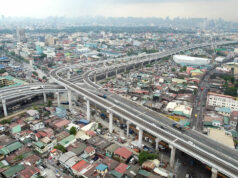Emerging markets more upbeat in trade outlook — study
By Anna Gabriela A. Mogato
Emerging economies are more confident that the global trade system will be restored than developed economies, Bloomberg found in its New Economy global survey released on Monday.
The study, which surveyed 2,000 business professionals in 20 markets, showed that 63% of respondents coming from emerging economies expressed confidence in the future of global trade, with only 36% from developed economies sharing the same sentiment.
Overall, the survey found that 70% of respondents have a positive outlook on the future of global trade, with 55% saying they see more global trade in five years’ time.
In the Philippines, the survey found that 51% of the respondents believe the global trade system will soon be restored, while 76% expressed confidence that there will be more trade in five years’ time.
The stark difference in outlooks between emerging and developed economies may suggest that “for emerging markets, the costs of the current slide towards a trade war could be less than expected,” Bloomberg Chief Economist Tom Orlik said.
“If businesses retain that fundamental optimism about the outlook for trade, continued hiring and investment could propel growth forward, even as tariff barriers rise,” he added.
Citing the International Monetary Fund, Bloomberg noted that the global growth forecast was reduced to 3.7% from 3.9%. Among survey respondents, 49% pointed to the US-China trade tensions as the reason behind hampered global growth.
Confidence in better global trade coming from emerging economies was most widely rooted in technology as the driver of their future. Some 66% of respondents said that they are actively adopting new technologies, particularly artificially intelligence, with 56% upskilling their workforces and taking additional professional courses. Specifically in the Philippines, 84% of the respondents said they are setting themselves up to adopt new technologies.
Bloomberg also noted that the 35% of the respondents in emerging economies acknowledged the need to start new business ventures, compared to the 10% from developed economies expressing the same.
The survey also noted that 71% of respondents in the Philippines saw that being environmentally conscious is needed to prepare for the future, aside from learning new technologies.
Globally, almost half of respondents from emerging economies saw the need for social consciousness in business. This, compared to the 37% from developed economies reporting the same.
Bloomberg Media Group Chief Executive Officer Justin B. Smith in the statement said that the survey shows the public sentiment on a world economy in transition, which will be further explored in its New Economy Forum next month.
Moving forward
Given the rise of new economies, 50% of global business professionals covered in the survey said that the globalization model focusing on multi-lateral free trade and open borders would only be effective if tweaked to spread its benefits evenly to reach more constituencies.
Amid this growing confidence, 50% of respondents in the Philippines. said that globalization benefits both developed and emerging economies. To navigate the uncertainty towards globalization, 35% of these respondents said that global businesses should increase investments in new economy markets.
While most respondents pointed to the need to adapt new technologies and become more environmentally conscious, global governance was noted to be the most critical concern among all global challenges which needs action.
To address this, 75% of respondents noted the need for world leaders and their governments to take initiative. Only 51% of respondents in the Philippines agreed with this sentiment.
Some 10%, on the other hand, said that the private sector should be taking the lead to further develop global trade.
Smith agreed with the minority, saying that the private sector should step up where governments have failed.
“New economies are playing an expanded role across trade and businesses today, and with a changing new world order, there is an urgent need for real dialogue and action on the long-term implications of this transitional moment,” he said.



